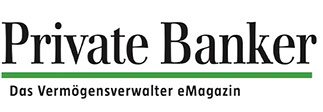

Value Column von Hans Peter Schupp
23 OCTOBER 2023
Hype investments have rarely proven successful!
The hype surrounding stocks in which artificial intelligence plays a role is enormous. The price-to-earnings ratios (PER) are still huge despite the current correction in the markets. NVIDIA’s peak PER reached over 200, and we have to admit that the latest quarterly figures were quite convincing. But does that justify such a high PER? Not in our view. As it is unclear how the company will perform going forward, given the rapidly developing research in the AI sector.
Who will still be among the winners in 10 years‘ time?
There is no doubt that AI has taken the economy a giant step forward and it will continue to do so. It will continue to revolutionize our lives and the economy. But: Which companies should investors bet on? Who will survive the next 5 to 10 years? In Germany alone, there are just over 2,800 startups working on artificial intelligence. Is there a new Microsoft among them? And if so, which of the countless think tanks will be successful? It’s clear that giants like Alphabet, Amazon & Co. will continue to be the leaders of the pack. But the Magnificent Seven, like Apple, Meta and all the other tech giants, are already ambitiously valued. And: Which of them will ultimately be among the winners in the long run?
Old economy companies have proven themselves even in crises
Why not invest instead in already established companies that have inevitably survived many crises. These should have better future prospects than the newcomers of the hour. The majority of hot IPOs and spacs from the wild boom of 2020 and 2021 are unlikely to survive the next crisis. Their products and processes, as well as their balance sheets, have too rarely been vigorously tested in stress scenarios.
Only one tech giant managed to beat the S&P 500 over the past 20 years
Many investors always like to buy the latest fashion trend, expecting fantastic profits. They ride the latest hype. However, they usually pay far too much for young shares of the future. That’s why many of these investments rarely work out. Rob Arnott from Research Affiliates has examined what has become of the superstars of the tech bubble of the year 2000 with a view to the current hype around artificial intelligence and NVIDIA. Of the ten largest tech stocks, only one, Microsoft, has managed to outperform the S&P 500 index to date – and only thanks to the recent rally. Before that, Microsoft shareholders had also lagged the index for a long 18 years.
Proven business models preferred
In our Contrarian Value Euroland fund, we tend to stick to proven business models that have successfully weathered many a crisis.
Do you like chees? Savencia is one such company. Do you know Géramont, Fol Epi, Bresso or Milkana cream spread? Most of you will probably currently have products from Savencia in your refrigerator. They all come from France – and have been since 1956. The products are sold worldwide, with an
annual turnover of around 6.5 billion euros. The company has never had a negative result in the last 25 years – even though it has had to deal with a number of crises during this time.
Another example is Koenig & Bauer. The first printing press was built in 1814, for the British „Times“. Koenig & Bauer has been through many crises and also survived several wars. And not only that: they have also had to „survive“ plenty of technical innovations – and have always sought and found their niche, such as in the money printing industry. And today, customers can give the Würzburg-based company whatever they want. Koenig & Bauer prints everything. Advertising materials, packaging, simply everything.
Even the old economy companies rely on artificial intelligence
And finally, a company whose products can also be found in almost every household: The French BIC Group. Whether ballpoint pens, disposable lighters or razors. Nothing special, all just smaller things for everyday use. But with these, BIC makes around 2 billion euros in sales and achieves an operating profit of over 300 million euros.
The medical and safety technology group Drägerwerk, or the Italian coffee machine manufacturer De’Longhi also belong in this category. They are all long-established family companies that have always adapted to changing competitive situations. Incidentally, they all also use artificial intelligence, for example in process optimization and in relieving routine workloads. They are simply moving with the times without having to invest billions.
Translation for convenience only!
The author: Hans Peter Schupp is a board member of FIDECUM AG and portfolio manager of the Contrarian Value Euroland fund.

